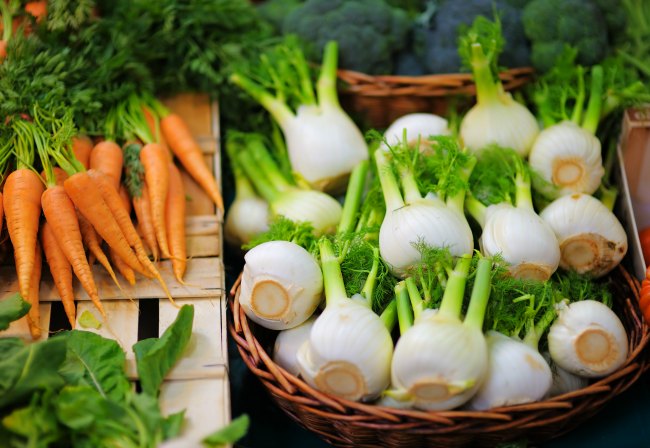
Buying local food for your family is nutritious, fresher, supports your local farmer and is good for the environment.
Local food travels fewer miles to land on your plate.
“Local food” does not have a specific definition, but these foods have been grown within a 100-mile radius (some even say up to 225 miles). The farther food travels, the more energy, and gasoline must be used to get the food to your plate. Buying local will save energy costs and valuable non-renewable resources.
Local food tastes better.
The crops are picked at their peak freshness, and farm-made products, such as cheeses and jams, are hand-crafted for the best flavor. Food from far away is older, has traveled long distances in trucks or planes, is jostled around in the shipping process, and has sat in warehouses and supermarket shelves before it finally gets to your table. Local food tastes better because it is fresher and has been grown or created with the consumer in mind.
Local produce is more nutritious.
The less time that passes between farm and table, the fewer nutrients fresh produce will lose. Locally grown fruits and vegetables contain more nutrients because they are picked at their peak freshness, transported shorter distances and sold directly to the consumer.
Local produce stays fresh longer.
Since the produce was picked the day before, it will last longer in your refrigerator (if you can hold off from devouring it!).
 Local produce is safe.
Local produce is safe.
Local farmers are not anonymous and they take their responsibility to the consumer seriously. The risk for major E. coli outbreaks will be slim to none with locally-grown produce.
Local food preserves genetic diversity.
While conventional farming practices mono-cropping with limited plant varieties, smaller local farms often grow many different varieties and rotate their crops to provide a long harvest season with an array of different colors and flavors.
Local produce benefits the environment and wildlife.
Well-managed farms conserve fertile soil and clean water in our communities. The farm provides a habitat for wildlife.
Local food connects you to the land through the farmers who grow your food.
There is something exciting about engaging in a time-honored connection between eater and grower. Talking to the very farmer who grew and picked your food gives you insight into the relationship between the seasons, the land, and your food.
Buy seasonal. Buy local as much as possible.
Your local farmers’ market is an excellent place to start!
 Local produce is safe.
Local produce is safe.











